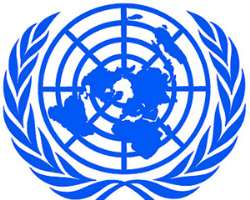SECRETARY-GENERAL, IN MESSAGE, SAYS OPERATIONALIZING RESOLUTION DECLARING 'DAY OF ZERO TOLERANCE FOR FEMALE GENITAL MUTILATION' CAN HAVE PROFOUND EFFECT

NEW YORK, February 6, 2014/African Press Organization (APO)/ -- Following is UN Secretary-General Ban Ki-moon's message for the International Day of Zero Tolerance for Female Genital Mutilation, to be observed on 6 February under the theme, “Preserve the Best in Culture and Leave Harm Behind”:
As Secretary-General of the United Nations, I hold high the banner of empowering women and girls, promoting their health and defending their rights. The International Day of Zero-Tolerance for Female Genital Mutilation is an opportunity to confront this persistent problem — and to find hope in initiatives proving that it can end.
We should strive to preserve the best in any culture, and leave harm behind.
There is no developmental, religious or health reason to cut or mutilate any girl or woman. Although some would argue that this is a “tradition”, we must recall that slavery, so-called honour killings and other inhumane practices have been defended with the same weak argument. Just because a harmful practice has long existed does not justify its continuation. All “traditions” that demean, dehumanize and injure are human rights violations that must be actively opposed until they are ended.
Female genital mutilation causes grave harm to individuals. The immediate and long-term health consequences include constant pain, infections, incontinence and sometimes deadly complications in pregnancy and childbirth.
The practice is declining in almost all countries, but it is still frighteningly widespread. Although firm statistics are difficult to obtain, it is estimated that more than 125 million girls and women alive today have been cut in 29 countries in Africa and the Middle East, where female genital mutilation is most prevalent and data exist. If current trends continue, some 86 million young girls worldwide are likely to experience some form of the practice by 2030. Asia, Europe, North America and other regions are not spared and must be equally vigilant in addressing the problem.
Fortunately there are positive signs of progress in our global push to end this harmful practice. Girls themselves instinctively understand the dangers of being cut, and many mothers who have seen or experienced the trauma want to shield their daughters from suffering. It is encouraging that an increasing number of communities are coming together and agreeing publically to end female genital mutilation and ensure a better life for their girls.
Recently, Uganda, Kenya and Guinea-Bissau adopted laws to end female genital mutilation. In Ethiopia, those responsible have been arrested, tried and penalized, with full media coverage further raising public awareness.
The United Nations and our partners are engaged in valuable, culturally sensitive activities that aim to stop female genital mutilation without scolding or shame.
In Sudan, we are seeing social change from a campaign called “Saleema”, the Arabic word that implies complete, intact, whole and untouched. One father moved by the effort who decided to leave his daughters uncut explained simply, “A girl is born Saleema, so leave her Saleema.” Hundreds of communities have embraced this initiative, expressing their support through songs, poetry and clothes in the campaign's trademark bright colours. Other countries are emulating Saleema or coming up with solutions tailored to their local needs, such as Kenya, where Meru community elders have prohibited female genital mutilation and vow to impose a fine on anyone who conducts or abets the practice.
In addition to prevention, the United Nations is working with partners to help those who have been affected by female genital mutilation. Pioneering medical advances now allow doctors to repair women's bodies and restore their health. I recall the words of one physician working in Burkina Faso who described “the relief that overwhelms women” following the surgery, which she said is 100 per cent effective. The many women who lack the resources needed to travel to the right facilities and the programmes that offer proper treatment deserve generous support.
The General Assembly's landmark resolution proclaiming this commemorative Day was sponsored by every country in Africa and embraced by the entire membership of the United Nations. This breakthrough shows the great value of the United Nations in rising as one to defend universal human rights. Now our challenge is to give real meaning to this Day by using it to generate public support, trigger legal and practical advances, and help girls and women at risk of or affected by female genital mutilation.
The effect on individuals will be profound, sparing them pain and spurring their success. The benefits will reverberate across society as these girls and women thrive and contribute to a better future for all.
